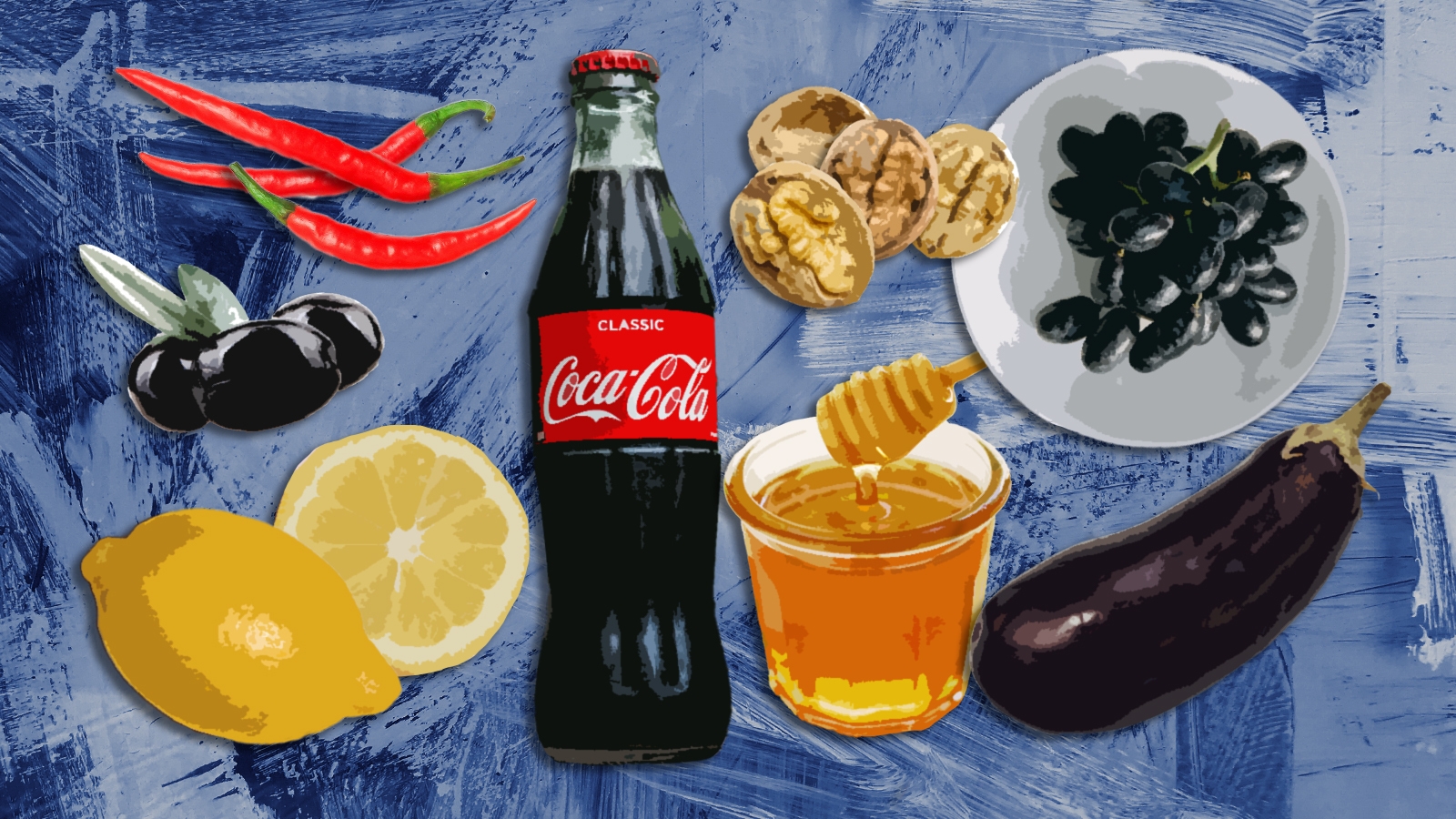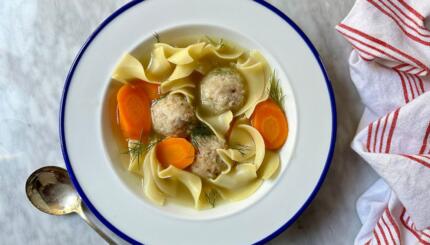Some Jewish culinary traditions are easy to understand. Take, for example, Rosh Hashanah, the Jewish New Year. Almost every Jewish community, while each maintaining its own variation, makes a point of eating dishes that symbolize their wishes for the new year: Honey for a sweet year, pomegranate for plenty of good deeds, a head of fish or ram to symbolize wishing to be a head leading the way and not a tail dragging along, or even a full Rosh Hashanah seder made up of small dishes whose Hebrew names relate to new year wishes.
But throughout the Jewish world, there are also dishes and ingredients that people purposely avoid on Rosh Hashanah. Call it superstition, or just playing it safe, but no one wants to mess with the chances for a good new year.
1. Sour or Bitter Foods
The first food group to avoid on Rosh Hashanah is just a matter of common logic: If we eat honey for a sweet new year, it makes sense to avoid anything that is sour or bitter.
Avoiding sour food is a tradition that started in the Geonim period in Babylon, between the 6th to 11th centuries. For North African Jews, it means no lemon, while Ashkenazi Jews avoid adding vinegar to their salads. People also make sure not to eat unripe fruit that may taste sour. Some avoid eating sour or bitter food until after Simchat Torah, right after Sukkot.
The Nosher celebrates the traditions and recipes that have brought Jews together for centuries. Donate today to keep The Nosher's stories and recipes accessible to all.
2. Salt
Salt is also considered the opposite of sweet, and in most Jewish communities you’ll find sugar in the little salt dish for dipping the round challah during Hamotzi blessing. (That round challah symbolizes the cycle of life, but that’s for another article.) Some Tunisian Jews avoid salt altogether during the whole meal.
3. Spicy Foods
Spicy dishes are also on the list of foods to avoid, although some rabbis say that if a person likes spicy food, or if a little heat (or tartness, for that matter) adds to the good taste of the dish, then it’s fine to use. In fact, a Mizrahi rabbi added that eating spicy (the same word as “sharp” in Hebrew) food will hopefully make one sharp in his Torah studies.
It’s interesting to note that in India, some people would hang lemon and green chilis outside their home, believing that the sour and spicy agents will prevent evil powers from entering the house.
4. Black Foods
Another group of dishes to be avoided are black and dark foods, which are considered a bad sign and may symbolize death in the new year. The Vilna Gaon, an 18th century Lithuanian Talmudist, is said to have avoided black grapes during the holiday. People also make sure not to eat black olives and eggplant. Some Tunisian Jews even avoid serving pkaila, a festive Shabbat overnight stew made of chard or spinach, because of the dark color it takes on after long hours of cooking. Moroccan Jews also avoid drinking black coffee, and even Coca Cola.
5. Nuts
A surprising addition to the list are walnuts, or nuts in general. According to professor Daniel Sperber’s “Minhagei Yisrael: Origins and History” on the character and evolution of Jewish customs, nuts were added at one point to the Rosh Hashanah table in some communities. He refers to Meir of Rothenburg, a 13th century rabbi in Germany, who wrote about eating nuts cooked in honey as a symbol for a sweet new year.
But later, rabbis noticed that nuts caused an increase in phlegm that interrupted people during the prayers. In order to ensure people refrain from eating nuts during the Holiday meals, says Sperber, the rabbis knew they had to turn the walnut’s positive symbolism into a negative one. And what better tool than gematria, the Jewish practice of interpreting letters through a numerical value? The word “egoz,” Hebrew for nut, equals “cheit” (sin) in gematria, and therefore they cannot be used as a good sign on the holiday table.
Another reason for avoiding nuts was the fact that in Classical and Medieval times, nuts were used as games. According to Professor Joshua Schwartz, it is mentioned in the Babylonian Talmud that women used to play with nuts, and it is assumed that they were not the only ones. In the Greek-Roman time and into the Medieval period, nuts were used for gambling games, as a tool or prize. The rabbis forbade using nuts on the holiday table to avoid the gambling that may have begun during or right after the meal, as this sort of bad behavior on the first day of the year may predict bad behavior throughout the year, and was best avoided.
6. Honey
I started by saying that most Jews agree on dipping apples in honey to symbolize a sweet new year. But a few years ago I learnt that not all Jews agree with this naturally sweet symbol.
“Honey in the Kabbalah doesn’t have a very good symbolism,” Professor Abraham Ofir Shemesh of the Faculty of Social Sciences and Humanities in Ariel University in Israel told me. Honey was not allowed as a sacrifice for God in the Temple:
“For you shall not cause to [go up in] smoke any leavening or any honey, [as] a fire offering to the Lord” (Leviticus 2:11).
The leavening symbolizes the evil inclination, Shemesh explained. “The leaven rises. That’s a symbol of pride, or arrogance,” he added, “and so is the honey, as opposed to other liquids, is thick, it has volume, and it suggests something that’s not very good.”
And so, according to Kabbalists, such as Rabbi Yossef Hayyim of 18th-19th century Baghdad, apples should be cooked in sugar and not served with honey. And this, indeed, is how Iraqi Jews, including my own family, serve apples on the holiday to this day, as a jam cooked in sugar. Rabbi Yossef Hayyim even specifies to say the blessing “a sweet new year” without adding “as sweet as honey,” as is customary in many communities.
Whether it’s via sugar or honey, may you have a sweet and happy new year.



